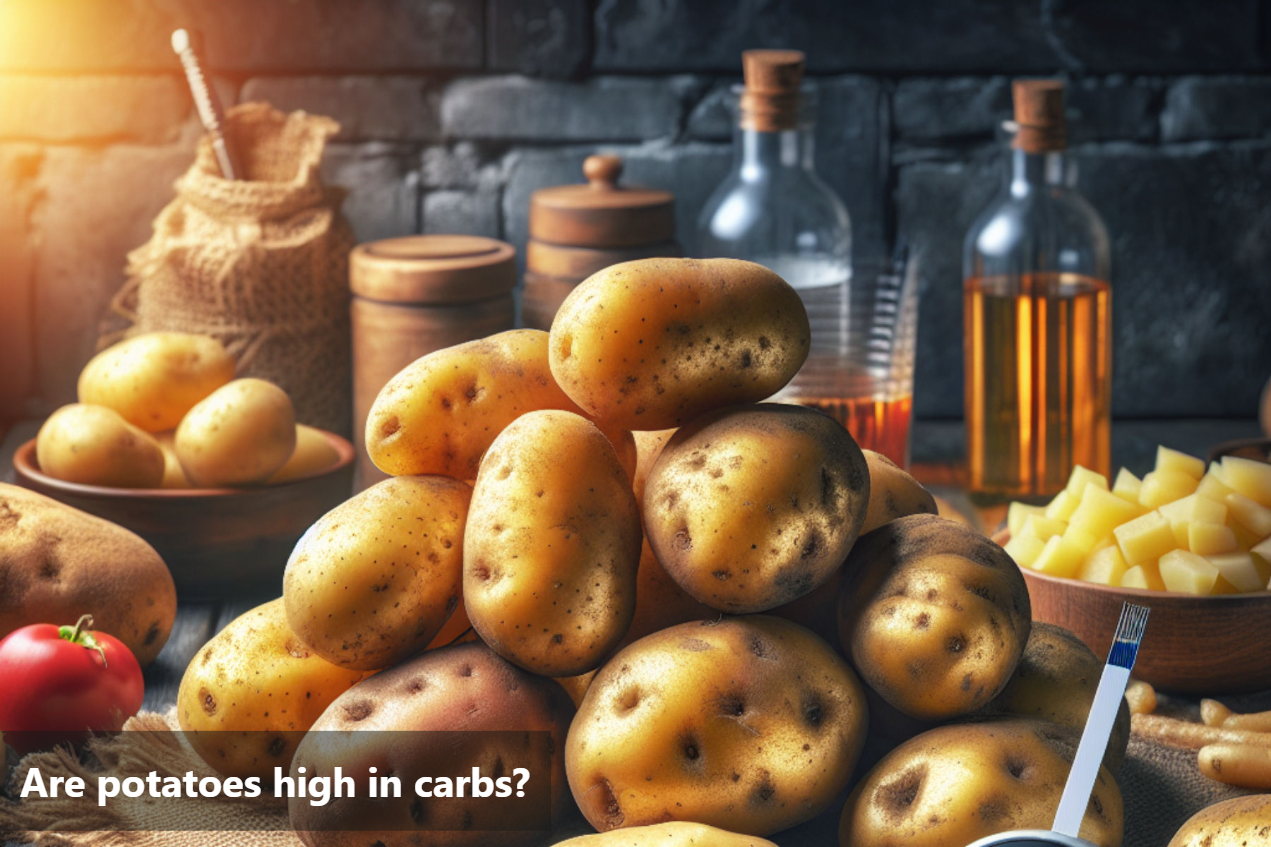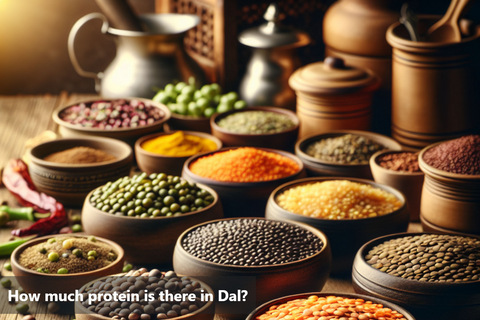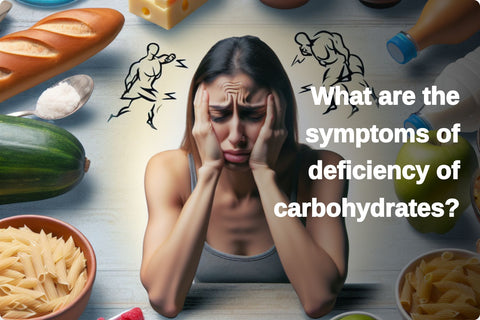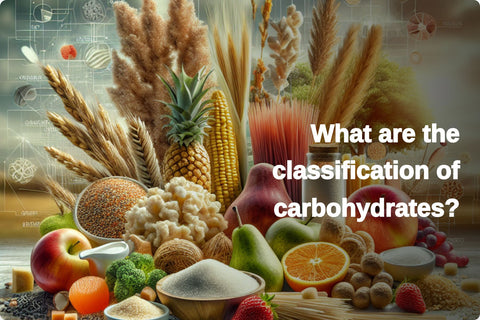
Are potatoes high in carbs?
Potatoes, a beloved staple in many cuisines worldwide, hold a unique place in the hearts of food enthusiasts for their incredible versatility. From crispy fries to creamy mashed potatoes, the culinary possibilities with this humble tuber seem endless. However, for individuals mindful of their carbohydrate intake, understanding the carb content in potatoes is crucial.
Potatoes are a significant source of carbohydrates, which are essential for providing the body with energy. While they offer a rich source of nutrients like vitamin C, potassium, and fiber, it's essential to note that the carb content in potatoes can vary depending on factors such as the variety and cooking method used.

Nutritional Composition of Potatoes
The nutrients found in 2/3 cup (100 grams) of boiled potatoes — cooked with the skin but without salt — are:
Calories |
87 |
Water |
77% |
Protein |
1.9 grams |
Carbs |
20.1 grams |
Sugar |
0.9 grams |
Fiber |
1.8 grams |
Fat |
0.1 grams |
Impact of Potato Preparation on Carb Content
Boiled or baked potatoes generally retain more of their natural carbohydrates compared to fried versions. This difference can affect the overall carb intake of your meal.
Different cooking methods alter the carb content in potatoes. For instance, frying potatoes typically increases their carb content due to absorption of oil, while boiling or baking them preserves their original carb levels. Opting for healthier preparation methods can help in moderating your carb intake and making a more carb-conscious choice.
To minimize carb intake while enjoying potatoes, consider boiling or baking them instead of frying. These methods not only retain the flavor but also help in controlling the carb content. Experimenting with herbs and spices for added taste without piling on extra carbs can enhance your potato dishes.
-
Remember, it's not just about how many carbs in a potato but also how you prepare and consume it. Being mindful of different cooking techniques can aid in managing your carb consumption effectively while relishing the versatility of this humble yet nutrient-rich vegetable.
Exploring Nutritious Potato Delights
Item
Nutrients
Benefits
Baked Potatoes
Baked potatoes are rich in carbohydrates, particularly starch. They also provide fiber, vitamins (such as vitamin C, vitamin B6, and potassium), and minerals.
Baked potatoes are a versatile and filling side dish. They offer a good source of energy, support digestive health due to their fiber content, and provide essential vitamins and minerals for overall well-being.
Mashed Potatoes
Mashed potatoes typically contain potatoes, milk or cream, butter, and seasoning. They provide carbohydrates, protein, fat, vitamins, and minerals.
Mashed potatoes are creamy and comforting. They offer a good source of energy, protein from dairy products, and essential vitamins and minerals. However, they can be high in calories and fat depending on the added ingredients.
Roasted Potatoes
Roasted potatoes are seasoned with herbs, spices, and sometimes oil. They provide carbohydrates, fiber, vitamins, and minerals.
Roasted potatoes are crispy and flavorful. They offer a good source of energy, fiber for digestive health, and essential nutrients. They can be customized with various seasonings and herbs to suit different preferences.
Potato Salad
Potato salad typically contains boiled potatoes, mayonnaise or yogurt, mustard, vinegar, and various vegetables and seasonings. It provides carbohydrates, protein, healthy fats, vitamins, and minerals.
Potato salad is a refreshing and satisfying dish, perfect for picnics or barbecues. It offers a good source of energy, protein from mayonnaise or yogurt, and essential vitamins and minerals from vegetables. It can be customized with additional ingredients like hard-boiled eggs or pickles.
Scalloped Potatoes
Scalloped potatoes are made with thinly sliced potatoes layered with cheese, milk or cream, and seasoning. They provide carbohydrates, protein, fat, calcium, and other vitamins and minerals.
Scalloped potatoes are creamy and indulgent. They offer a good source of energy, protein from dairy products, and essential nutrients like calcium. However, they can be high in calories and fat due to the added cheese and cream.
Potato Soup
Potato soup typically contains potatoes, broth, milk or cream, vegetables, and seasoning. It provides carbohydrates, protein, fat, vitamins, and minerals.
Potato soup is warming and comforting, perfect for cold weather. It offers a good source of energy, protein from dairy products, and essential vitamins and minerals. It can be made with various vegetables for added nutrition.

Unraveling the Carb Mystery: Are Potatoes High in Carbs?
Understanding the carb content in potatoes is crucial for individuals conscious of their health and dietary choices. When incorporating potatoes into a balanced diet, portion control is key. Opt for smaller servings or consider lower-carb potato varieties like sweet potatoes or red potatoes. Additionally, the method of preparation significantly impacts the carb content. Boiling or steaming potatoes can help retain more nutrients and reduce the carb content compared to frying or roasting them with added fats.
To keep your carb intake in check while enjoying potatoes, balance your meals with other nutrient-dense foods like lean proteins, healthy fats, and fibrous vegetables. Consider including potatoes as part of a post-workout meal to replenish glycogen stores or pairing them with protein for a satisfying and balanced dish.
This Blog post is an initiative by Lo! Foods, to provide accurate and Nutritionist / Doctor approved information related to Health. Lo! Foods is India's leading brand for Everyday Functional Foods. Foods designed for specific Health conditions or Needs. Lo! Foods also runs India's largest range of Low Carb Healthy Cloud Kitchens, under the brand names of Lo!, ProteinChef, ATH (All Things Healthy) and DiabeSmart.















Leave a comment
Your email address will not be published.